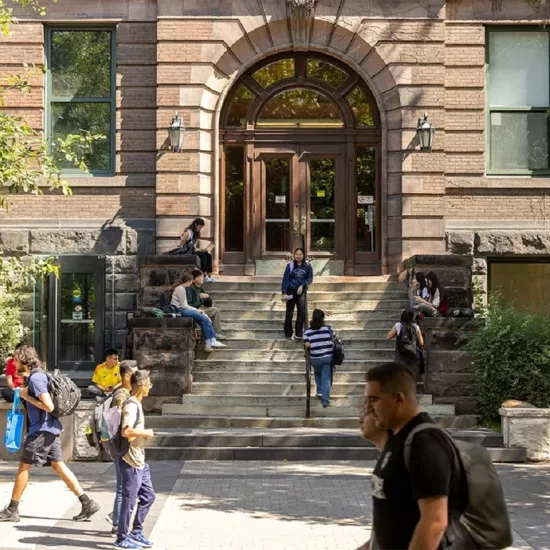Detention: UTM prof Jerry Flores on California's 'wraparound incarceration' of Latina teens

From reform school to jail and back again, U of T Mississauga sociologist Jerry Flores chronicles the lives of young women in California’s juvenile reform system who are caught in a cycle of 'wraparound incarceration' that is nearly impossible to escape.
Flores, who joined UTM’s Department of Sociology in July 2017, studies prison and alternative school systems, with a focus on how participants navigate gender and violence within those environments. He is part of a growing number of faculty within the department researching issues of criminology, law and punishment.
His 2016 book Caught Up: Girls, Surveillance and Wraparound Incarceration examines the lives of young Latina women trapped in a cycle of education and incarceration in southern California. In a two-year ethnographic study, Flores followed the lives of fifty girls, aged 12 to 19, and their experiences in connected programs provided by the “Legacy” community school and the “El Valle” juvenile detention centre. His findings show how difficult it is to escape the “wraparound” system and highlights the symbiotic relationship between educational and penal institutions.
“The joined programs ensure that the girls have access to a continuous education curriculum, regardless of whether they are outside or incarcerated,” he says. Girls attending the “Legacy” community school are subject to surveillance practices such as mandatory drug testing and an in-school parole officer. “The surveillance is intended to help bring down rates of recidivism and help them transition,” he says.
“These well-intentioned services are designed to provide youth with support at home, at school and in the actual detention center,” Flores says. “However, I found that the services more closely resemble a phenomenon that I call ‘wraparound incarceration,’ where students cannot escape the surveillance of formal detention despite leaving the actual detention center.”
According to Flores, the end result pushes the girls away from traditional schooling and into the justice system. “Young women would get into trouble with the law and—once they had a positive probation status—any infraction, like staying out past curfew, drinking a beer, testing positive for marijuana at school, or hanging out with the wrong people or in the wrong neighbourhood—could land them back in jail,” Flores says. “The ultimate goal of the services is to keep young people at home in a safe environment and away from detention centres, but what I saw was completely different. For young women in ‘Legacy’, returning to ‘El Valle’ became an unavoidable consequence of wraparound services.”
Flores also explores contributing socioeconomic factors. “These young women are born to immigrant familiesthat are barely scraping by as day labourers or in agriculture,” Flores says. “Their parents are working hard, and the girls are left to their own devices where they have to make very adult decisions at a stage when they are not yet mature. Do they stay home and not eat, or do they take their siblings to beg for change to buy a hotdog from the corner store?”
Flores gained the trust of his interview subjects by sharing his own experiences as a child of Latino immigrants to California. Although he was never incarcerated, Flores says his own run-ins with authority during his teen years led to him dropping out of high school before finally completing his education through an alternative high school program.
Flores’ current research focuses on the use of force in interactions between the police and citizens, with an emphasis on mental health issues and how the use of technology, like video, might change those interactions. He is also involved in a nascent project related to missing and murdered Indigenous women in Canada. “In my work, I take an ethnographic approach and push it forward with technological innovations,” Flores says. “I’m curious to see how the experience of marginalized women in this space are similar or different from those I spoke with in Caught Up.”
Check out more research from UTM's Department of Sociology:
- New book by Assistant Professor Ellen Berrey reveals limitations of discrimination law
- Crime and Punishment: Assistant Professor Ashely Rubin studies early American prisons
- From 'high life' to higher learning: The unusual career path of Assistant Professor Randol Contreras
- Down on the Farm: Assistant Professor Philip Goodman on the closure of Canada's prison farms
- Home Security: Assistant Professor Nathan Innocente on mortgage fraud and identity theft
- Sociology symposium showcases student research



